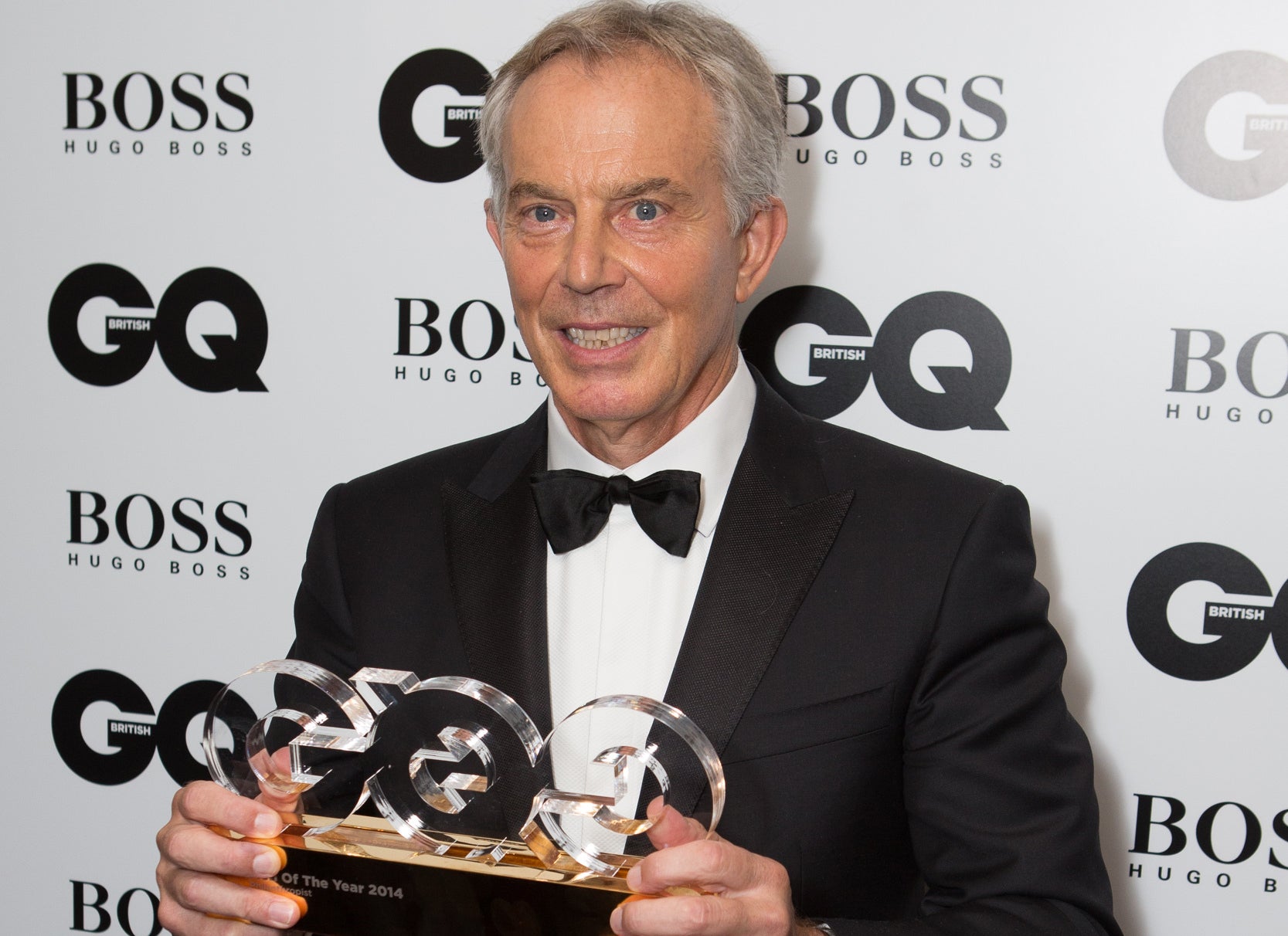Tony Blair had every right to win the GQ award for philanthropy, but try telling that to the haters
Even in ‘1984’, the Two Minutes Hate lasted only two minutes. This goes on and on


Your support helps us to tell the story
From reproductive rights to climate change to Big Tech, The Independent is on the ground when the story is developing. Whether it's investigating the financials of Elon Musk's pro-Trump PAC or producing our latest documentary, 'The A Word', which shines a light on the American women fighting for reproductive rights, we know how important it is to parse out the facts from the messaging.
At such a critical moment in US history, we need reporters on the ground. Your donation allows us to keep sending journalists to speak to both sides of the story.
The Independent is trusted by Americans across the entire political spectrum. And unlike many other quality news outlets, we choose not to lock Americans out of our reporting and analysis with paywalls. We believe quality journalism should be available to everyone, paid for by those who can afford it.
Your support makes all the difference.For a decade now I have tried to understand Blair rage. Here is one of Britain’s most successful prime ministers, whose government helped make the country a measurably better place, who has devoted his post-political life to further public service, yet who is hated and abused.
On the facts, the award by GQ magazine of the title “Philanthropist of the Year” should be merely descriptive. He has given millions to charity; runs three charitable foundations that promote inter-faith dialogue, development in Africa and sport in north-east England; advises governments around the world; and works, unpaid, as the representative of the international community in Palestine. But all this only intensifies the loathing of him by people who ostensibly disagreed – many of them after the event – with one part of his foreign policy.
Those who opposed the invasion of Iraq in 2003 are entitled to be angry, although they generally did not oppose it on the grounds that 170,000 people would die, mostly in the sectarian conflict that was an indirect result.
Much of the venom, however, comes from the persistent belief that Tony Blair made the case for military action dishonestly. Again, this makes no sense on the facts. As George Bush has pointed out, it involves inventing an pretext for war, namely weapons of mass destruction, that would quickly be discovered.
But I think something else is going on. Part of it is people’s annoyance with themselves for, as they see it, having invested so much hope in Blair in the first place. Part of it is people’s pathological reluctance to take responsibility for the compromises of politics: far easier to blame a malign individual for the failure of the Promised Land to materialise.
Part of it is the British suspicion of making money. Never mind that Blair himself makes no money from the most controversial of his contracts, to advise the Kazakhstan government. Never mind that he employs 200 people in his various enterprises. He lives well.
This is intolerable to many. People want a former prime minister to live in a shed on the Isles of Scilly and drive around in an Austin 7. And they admire John Major, who made a lot of money working discreetly as a director of Carlyle group, a US-based global asset management firm, and whose chances of being nominated as philanthropist of the year are remote.
Join our commenting forum
Join thought-provoking conversations, follow other Independent readers and see their replies
Comments